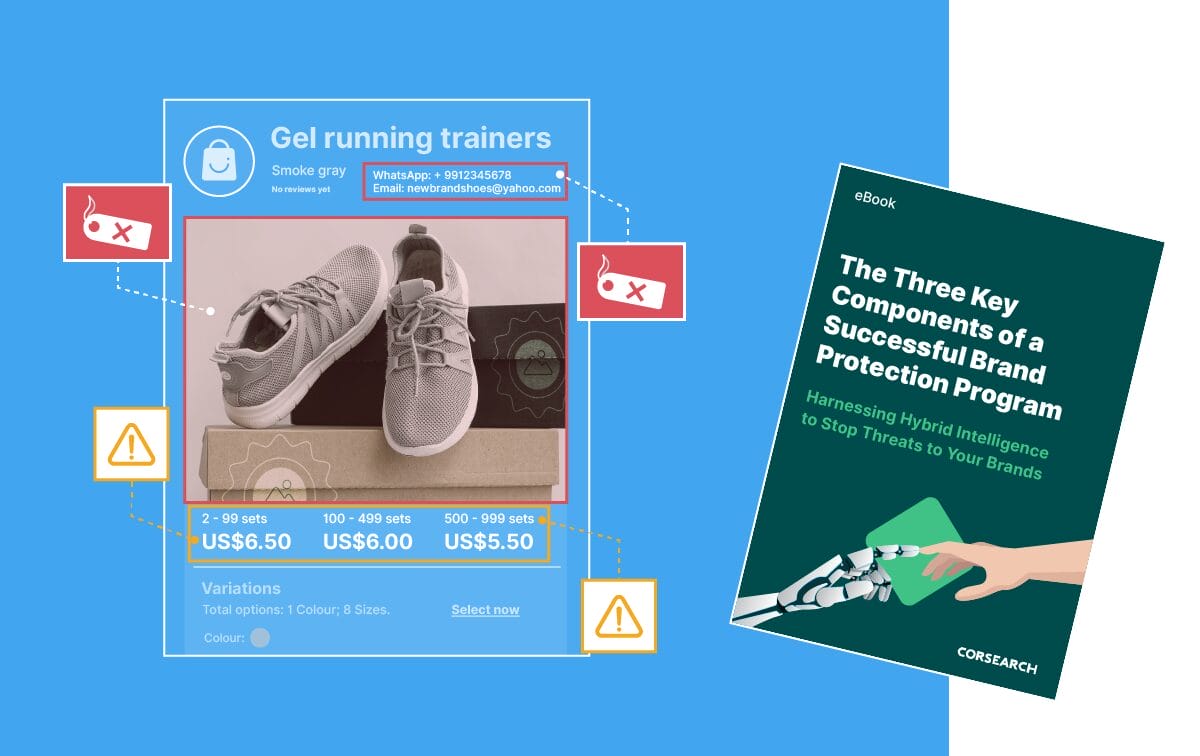Blog
Counterfeit car parts risking lives
- Brand Protection

Counterfeiting is often seen as a victimless crime; people lose money and purchase inferior products, but no one is hurt. This couldn’t be further from the truth, and in specific industries such as pharmaceutical and automotive, it is endangering lives.
The counterfeit car part market is a widespread issue estimated to be worth up to US$20bn. In 2016 and 2017 alone there were over 600,000 items seized globally, with most of these fake products being created in Dubai, Abu Dhabi, UAE and China. Corsearch’s experience of working with clients has proven that offline activity such as this can only scratch the surface of the problem, whilst a brand protection strategy that integrates online intelligence and enforcement with offline activity can deliver real impact.
What parts are being counterfeited?
The most common car parts that are being illegitimately produced include:
- Filters
- Brake pads
- Lights
- Wheel rims
- Air bags
- Seatbelts
- Tyres
When parts so instrumental to safety, such as brake pads, seatbelts and airbags, are not being subjected to the strict safety regulations that legitimate parts must adhere to, it causes real issues. They are being very cheaply produced and are completely inadequate when it comes to protecting people and saving lives.
Counterfeit brake pads
A test conducted by Mercedes-Benz that compared real and fake brake pads showed that cars driving at 100km/h on a dry surface took 25 metres longer to come to a complete halt. BMW had another test in 2017 where fake brake pads started to smoke and disintegrate early on in standard testing procedures. Unlike some other sectors, the risk of an ineffective brand protection solution for auto manufacturers is not just to brand equity and revenue, but also to their consumers.
Fake brake pads have been found made of all different kinds of products, including situations where dried grass had been dyed to look like rubber. Whilst infringements such as this may be easy to identify in person, it can be harder to do so ahead of purchasing online. Recent research by Corsearch revealed that suspicious pricing is one of the key indicators for consumers that a product is fake; however, in cost-conscious industries such as car repairs, a low price can be hard to resist. It appears, therefore, that the automotive brands themselves must address the challenge of counterfeits if they are to mitigate the risk to their reputation, their revenue, but most importantly, to their consumers.
Fake vehicle parts seized in England
The issue is prevalent in England; earlier in 2018, hundreds of fake air and fuel filters for vehicles were seized in the north of the country, branded as Citroen and Peugeot in an attempt to look legitimate. It is a large enough issue that the UK Government has started awareness initiatives warning consumers about the risks and encouraging them to be diligent when purchasing parts, including information on the danger of counterfeits, how to identify them and how to report them.
A particularly worrying issue is that it is often garages who are inadvertently purchasing these unsafe and cheap parts, and using them to ‘repair’ consumers’ vehicles, whose owners are completely unaware. This further demonstrates that whilst the need to educate the public is important, brands themselves need to do more.
Brands must be responsible
Car manufacturers must do their part in protecting their clients. One of Corsearch’s clients in the industry had an issue with fake parts being produced in China and sold on online marketplaces; within 6 months of engaging with us, we had cleared platforms across the entire region for them.
This demonstrates the power that having a comprehensive, intelligence-led brand protection strategy can have on the issue, delivering a sustained reduction in infringement by addressing the source of the problem, rather than just taking down individual listings.
Car parts are a lucrative pursuit for counterfeiting networks to target. With the ability to produce products so cheaply, it will continue to be a target until manufacturers put the measures in place to make it hard for them to turn an easy profit. Effective online brand protection gives businesses the intelligence to uncover entire networks promoting and selling these illegal and dangerous products, so they can enforce at scale and cause lasting damage to them rather than minor inconveniences. Whilst enforcing online at scale like this can be the most efficient way of dealing with the challenge, other clients prefer to use the intelligence from our clustering technology to accelerate offline activity without the need for time-consuming and costly manual investigation work. Either way, brands need to leverage technology to help drive the effectiveness of their strategy to protect their consumers and their brand.
If you would like to know how our technology can help your business reduce risk and protect your consumers, talk to one of our experts.





